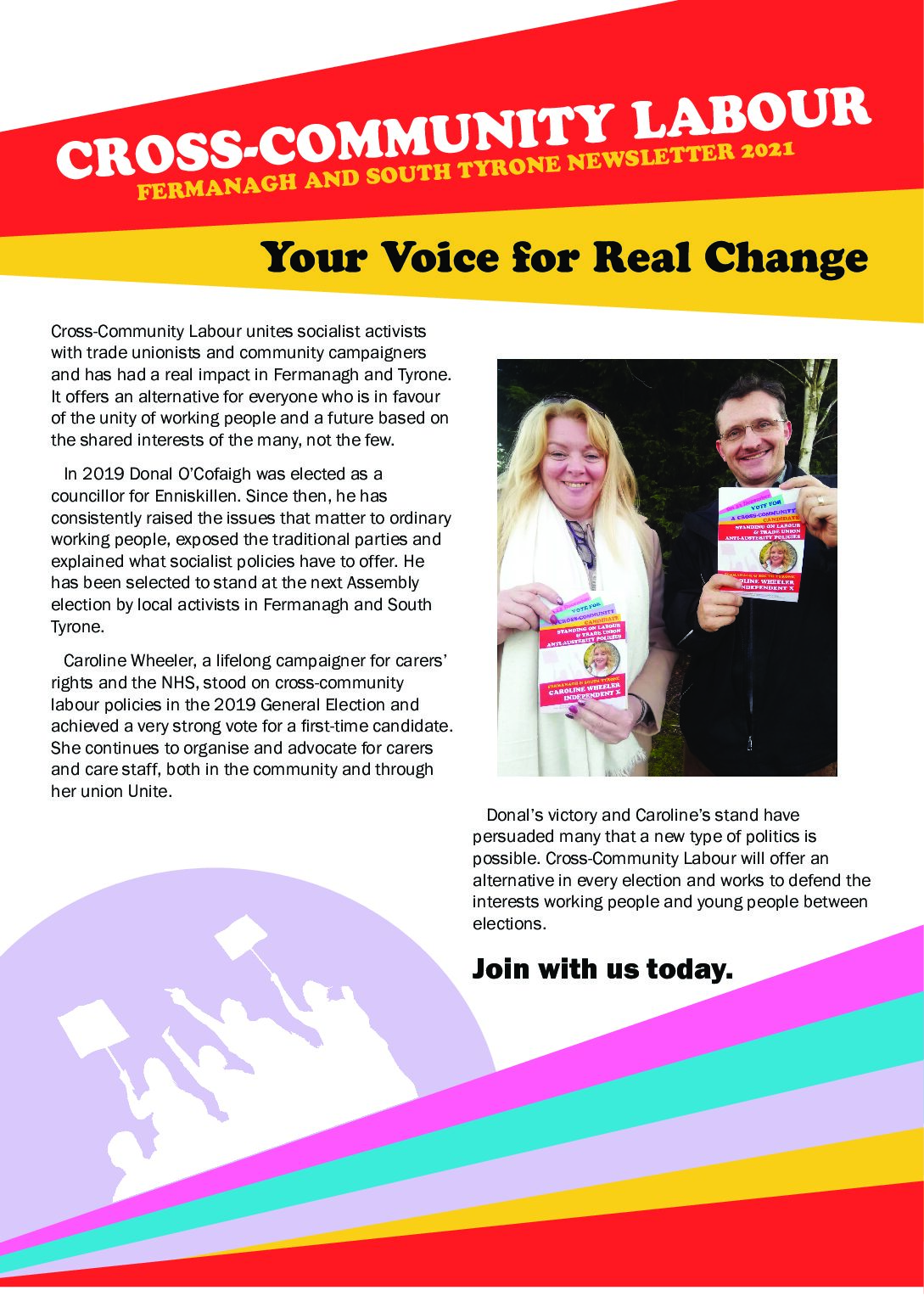First published on Militant Left Website, December 2022.
“Once they start nibbling the biscuit of socialism, before they knew where they were their children would be tied hand and foot”.
Northern Ireland Prime Minister Basil Brooke on voters during 1945 election campaign
The National Health Service is the most comprehensive, fair and efficient health service in the world. Today however, it is in crisis. In Northern Ireland waiting lists are longer than ever, and acute hospitals and GP surgeries in rural areas are closing down.
A fightback has begun. Staff have voted to take strike action for decent pay and the local community in Fermanagh and Tyrone have mobilised to defend the South-West Acute Hospital outside Enniskillen. The struggle for higher wages and better conditions, central to the retention of staff, and the defence of local services, depends on the united action of working people.
We cannot rely on the five parties which have governed the North over the last two decades All of the main parties support the Bengoa Report which justifies the closure of rural services, and none stands squarely for the just demands of NHS staff. We need a mass political party which gives a voice to working class and young people who are fighting for a better life. Such a party must stand resolutely against sectarianism and all forms of discrimination and put forward arguments for the socialist re-organisation of society, including a re-vitalised health service.
To understand the present, we must examine the past. The NHS was not an overnight creation but the end result of decades of campaigning and agitation. It came into being at a time of profound social change. In the last analysis, as argued by the US socialist writer on health Vincente Navarro, “class struggle was indeed the main force behind the development of state health care”.
Understanding the rhythm of the class struggle is key to understanding the roots of the NHS. When those who control society sit down to discuss their options, they do not do so in a social vacuum. They must calculate the degree of pressure from the working class, expressed through the trade union movement and working-class political parties. This pressure means that at times the ruling class concedes temporary measures to buy social peace.
The social and economic forces that shaped our National Health Service in its early days hold powerful lessons for today. The most important is this: we cannot rely on unionism or nationalism to defend our interests we can only rely on our strength. We must build united community campaigns, combative trade unions, and a political party for all working-class people. This is the only way to defend our NHS from repeated attacks.
Continue reading


